No one thinks about irritable bowel syndrome relief until IBS hits and our gut health suddenly becomes a priority. An herbal tea recipe to the rescue.
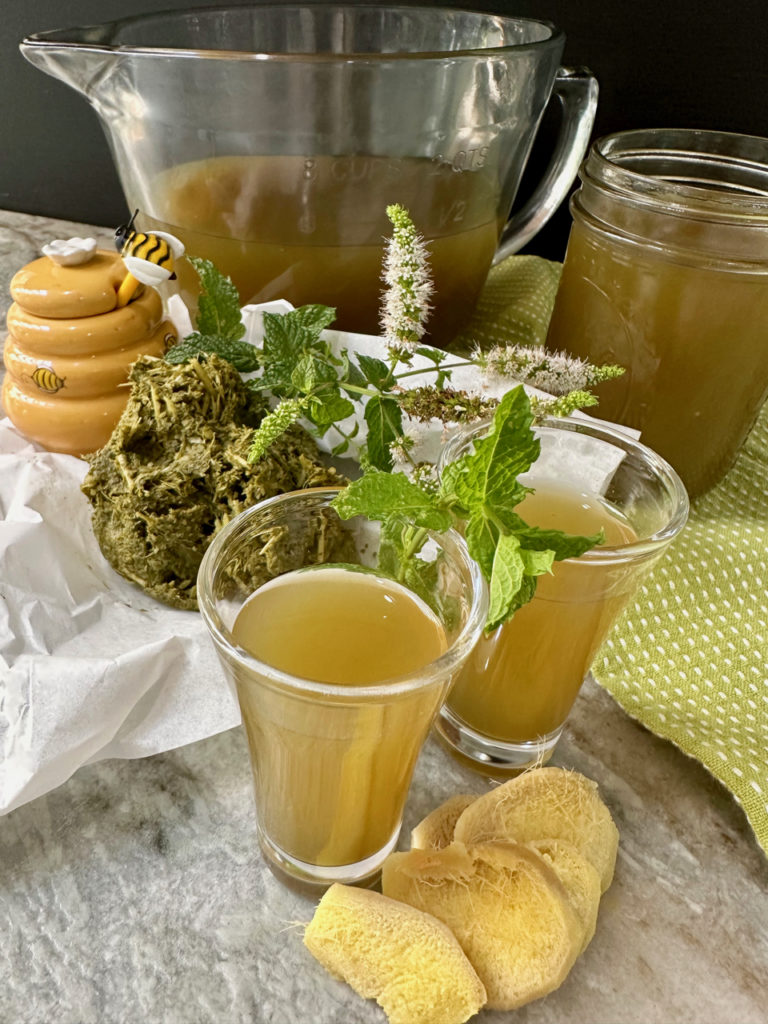
What Is IBS?
While we don’t often talk about a syndrome many may suffer with, a great way to find comfort and relief is to first bring these health conditions out in the open and talk about them.
Our digestive system can by more delicate than we give it credit to be, and when a chronic digestive condition arises and creates pain and discomfort in the stomach and intestines, it is time to talk about it.
Time to examine the food and lifestyle we have adopted that is affecting our gastrointestinal tract, also known as IBS – Irritable Bowel Syndrome.
Quality Of Life
Having been mindful of my digestive health all my life, I have never suffered from digestive problems.
Remember I told you long ago I was practicing Yoga herbal blends, both internally and for hair and skin, back in the 70’s when I was becoming a cosmetologist? Yeah, I was a nerd and a health nut even back then.
However, when I heard several of my family members begin to talk about being doubled over in pain with intestinal spasms, abdominal pain and bowel movements that were off the charts abnormal, every possible alternative medicine recipe fast found its way into my kitchen until I could concoct natural remedies for relief.
IBS Symptoms
First it seems to start with an upset stomach, you question whether you may have picked up a flu bug or ate something that didn’t agree with you.
Within days you are still suffering with abdominal cramps, bloating and flatulence, and then vacillate between constipation and diarrhea accompanied by bowel spasms. What the heck!!
Traditional medicine, with anti-inflammatory properties is not a long-term solution. Lifestyle changes must be made, as I tell my adult kids who have experienced annoyances with digestive symptoms.
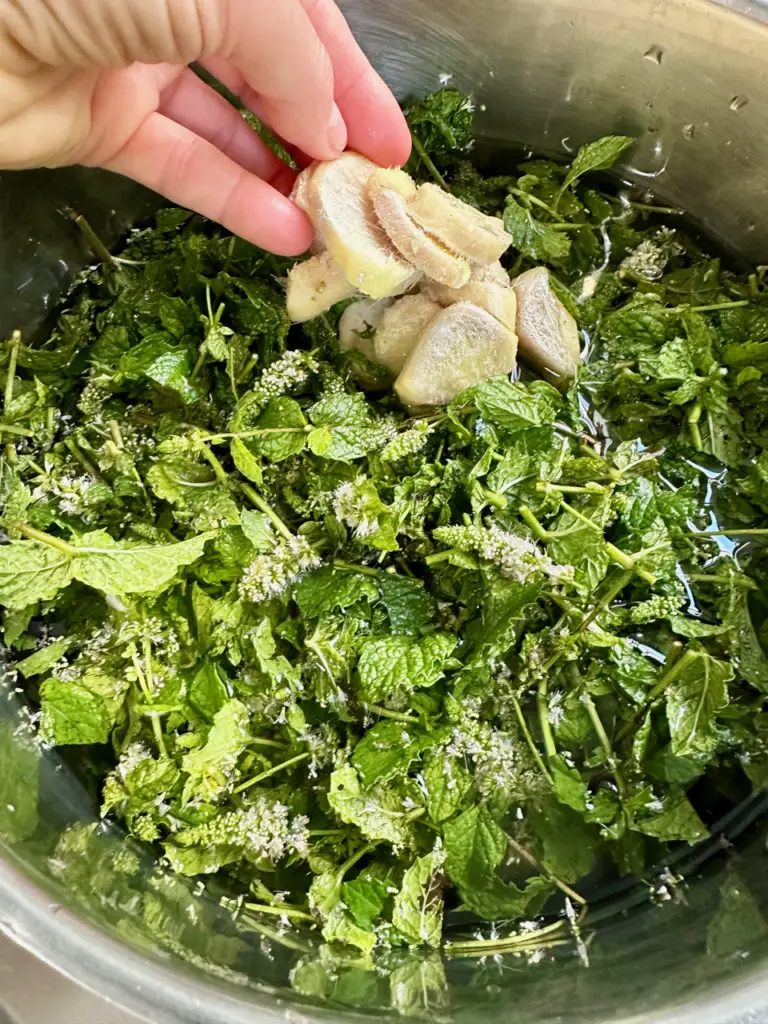
Lifestyle Changes
Think about this for a moment; 90% of foods sold in supermarkets didn’t exist 100 years ago, neither did 90% of modern diseases, states Tim Biohacker!
Inflammatory bowel disease did not exist when I was growing up, at least not as it does now, and so what that tells me is that modern lifestyle changes would benefit by returning to some old fashion ways of eating.
More people than I’ve even known throughout my lifetime, now have a food intolerance, acid reflux often turning into gastroesophageal reflux disease (as I know one of my children is wrestling with), and apparently higher stress levels in their daily life.
Treatment Of Irritable Bowel Syndrome
While I don’t believe there is a specific treatment for IBS, simply because it wasn’t caused by a specific situation but rather lack of attention to overall health and a lifestyle, there are various types of herbs in the form of tea, that can offer comfort when the symptoms occur.
We must be willing to make changes in our diet and lifestyle if we hope to escape this painful syndrome so many are suffering with.
So why not start first in our kitchen with many remedies that offer comfort or relief while you and your doctor probe for a medical condition that might be causing your IBS.
Herbal Remedies Offer Great Health Benefits
Where do many of our traditional medicines originate from?
Many years ago a friend had been living in the interior of Brazil and told me about the American pharmaceutical companies that had erected laboratories throughout the country to study plant medicine.
I was fortunate enough to visit some of the Brazilian communities that study plant medicine throughout Brazil when I was living there.
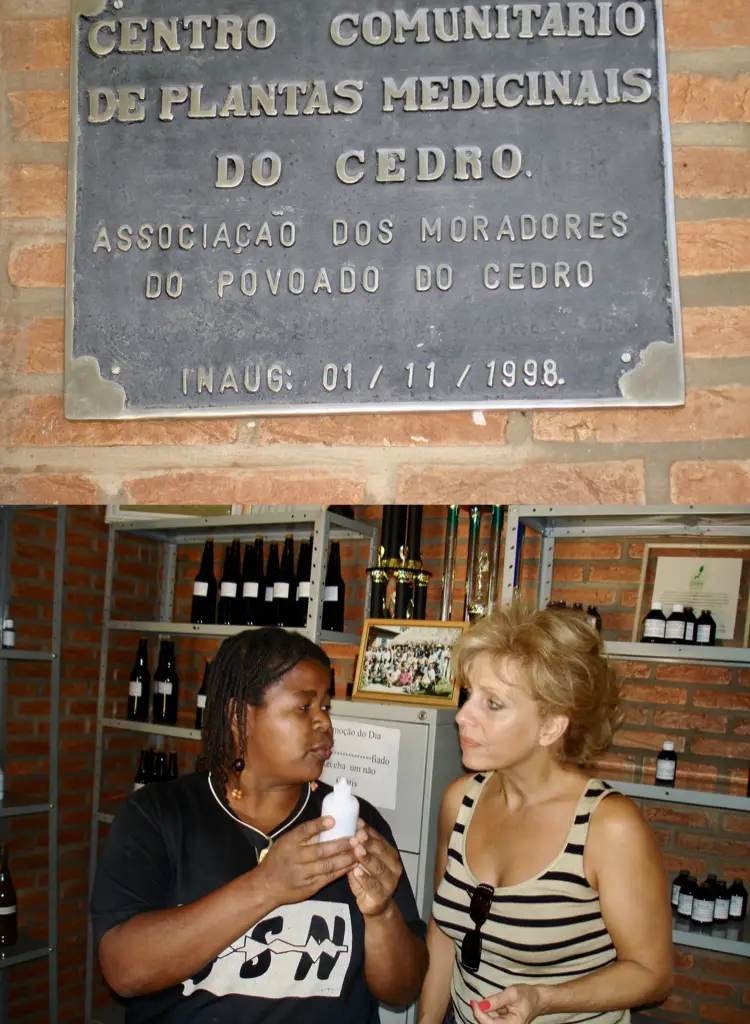
Once the DNA of a plant is studied and found to contain beneficial medicinal properties, it gets patented, mass produced, and becomes available to us when we are in need.
Where do you think aspirin came from? Plants, its main ingredient comes from a natural product found in plants such as willow and myrtle.
So let’s start with plants for some relief, which is what inspired the writing of my most recently published book Dirt To Dish.

Tummy Troubles
A few years ago I contracted a parasite in my intestines from eating raw oysters. Honestly, I’m not sure why we think it’s ok to eat raw fish or meat, especially when we don’t know how long its been dead!
The symptoms were similar to symptoms of IBS with digestive issues that lasted three months.
Doctors told me there really is no treatment for a parasite and that it had to go away on its own.
Medicinal Plant Benefits
Our digestive tract is often not equip with the necessary levels of probiotics in its digestive juices to do battle with the bacteria in raw food.
It was then that I discovered several plants that offered relief while I waited for this parasite to go away.
The first plant that offered relief with antispasmodic properties was slippery elm, a plant bark ground into a powder that I am never without in my cupboard.
I found it to have anti-inflammatory benefits that seemed to offer a ‘slippery’ lining that offered the stomach and intestines soothing relief.
Turmeric Tea
I was surprised when my son, a skeptic of natural remedies, told me he was taking turmeric shots with apple cider vinegar to offer his tummy troubles relief with anti-inflammatory and antibacterial comfort when he was experiencing IBS symptoms.
Turmeric can contribute to healthy digestion when the raw root is boiled to make a tea to sip on, something Ayurvedic medicine has been known to use as a digestive healing agent.
Best results to aid in relief when IBS symptoms occur, can be found in a simple cup of tea boiled from herbs and plants.
It has long been my experience that pills, powder and processed forms of herbs and roots, lose some of their medicinal properties along with the loss of their liquids and oils.
If at all possible, make herbal teas from the plants and roots.
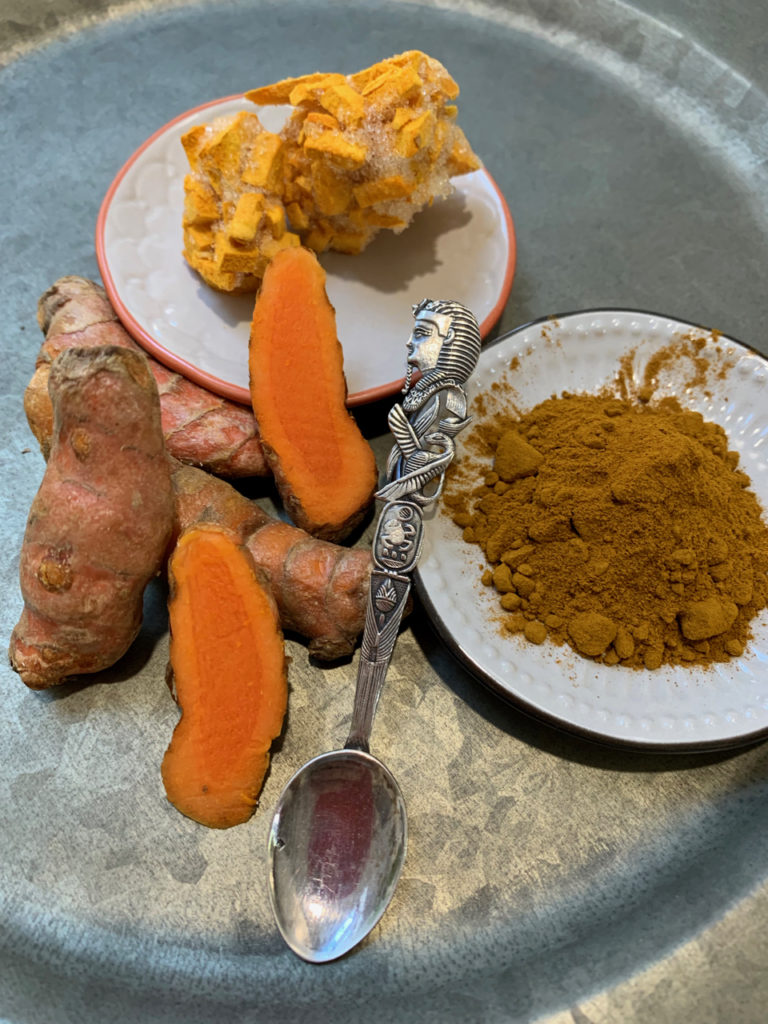
Peppermint Tea Relief For Irritable Bowel Syndrome
Mint tea has a long history of use and is often used to relieve digestive issues and other tummy troubles.
After having a large or fatty meal, mint tea can soothe the intestines, reduce bloating and help relax the muscles in the gastrointestinal tract.
The menthol in peppermint tea is said to have antispasmodic effects that relax the muscles in our digestive tract, helping food move through the body more smoothly.
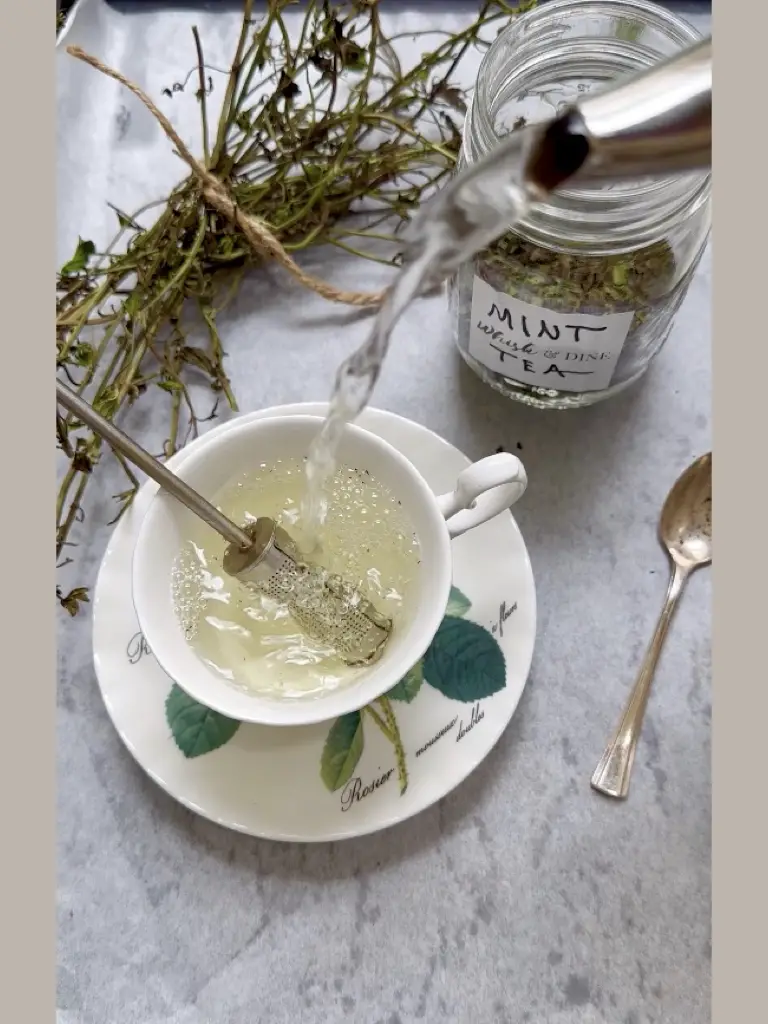
Ginger Can Relieve IBS Symptoms
While ginger is known for soothing upset stomachs it can also affect pain and gut motility (the movement of food through the gastrointestinal tract), which can help with IBS pain.
Gingerol, a natural component of ginger root, can help with digestion, mild stomach upset, and nausea caused from various conditions.
While nausea is not commonly a symptom of IBS, diarrhea and constipation are, and both can experience relief from freshly ground ginger root simmered into a tea.
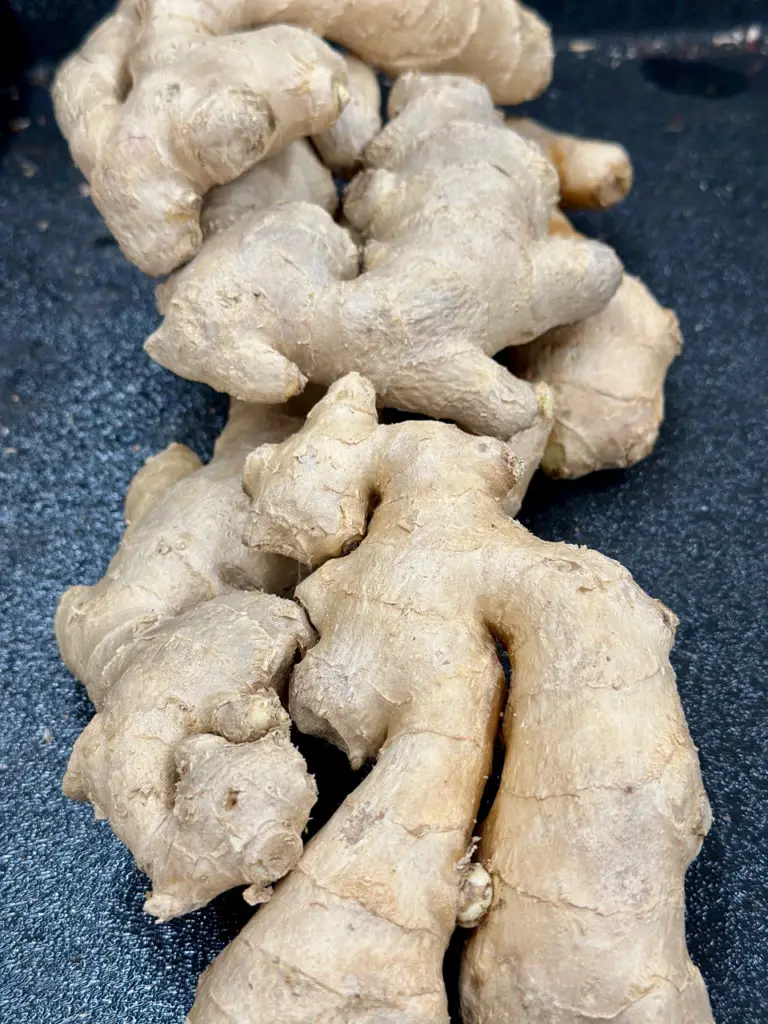
Honey Helps The Digestive System
Probiotics are of course important to a healthy digestive system and honey has been recognized for one of its properties that can promote the growth of lactobacilli and other probiotics in the body.
Of course in the search for relief of irritable bowel flair ups, we need real, pure honey, not sugary syrup being sold as honey.
Real Honey
In fact, the last thing the digestive system needs during an IBS attack is sugar, as sugar helps to breed bacteria.
Pure raw natural honey is what we need for healing and relief and here is a crazy cool way to know if your honey is real.
The Fire Test or The Water Test
Peppermint And Ginger Shots For IBS
When my summer garden is bursting with lots of herbs, I often harvest large amounts of fresh peppermint and prepare a concentrated tea to freeze for year round illnesses.
In a large pot, simply bring water to a boil, drop in fresh, clean peppermint with a large ginger root that has been peeled and roughly chopped.
This mixture simmers, and then steep to extract valuable oils from the mint and natural juice from the ginger.
Honey is added after the heat is turned off so as not to boil out the benefits in the honey, benefits that help fight infections caused by bacteria in the gut.
This concentrated tea is ready to take in shot glass amounts throughout the day as needed, or freeze the mixture in an ice cube tray then stored in an airtight container in the freezer for a year.
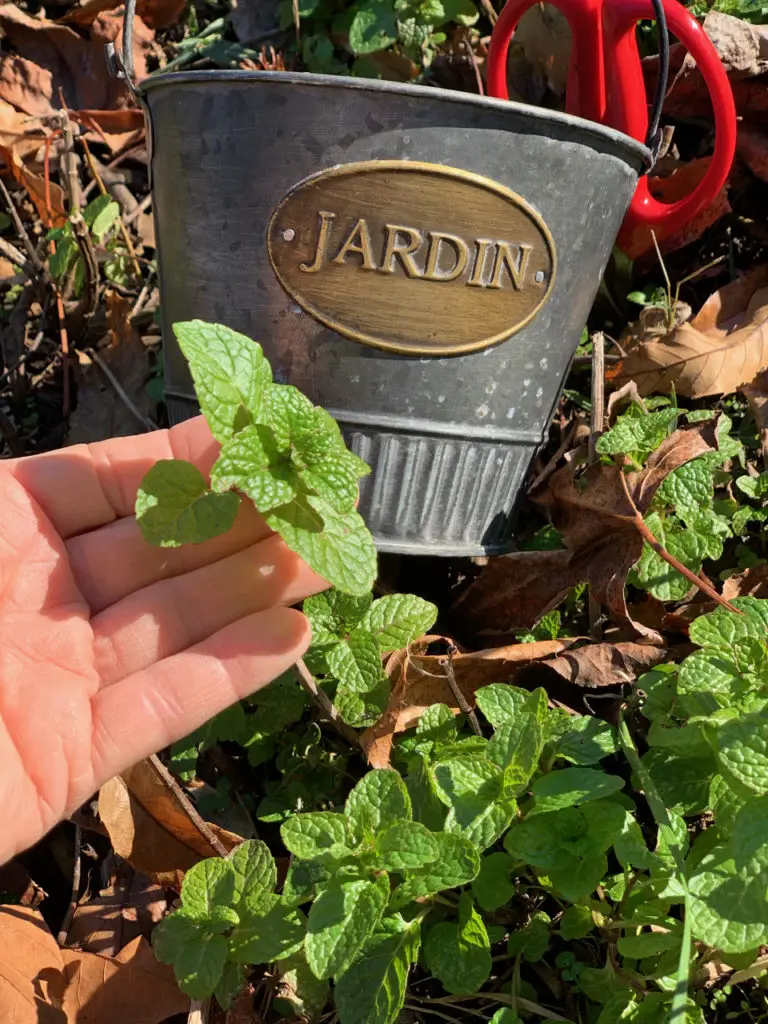
Equipment Needed
- Large pot with a lid
- Strainer or Chinois – used by professional chefs and easily used by home cooks.
- Vegetable peeler – to peel the ginger root
- Knife and cutting board
- Food processor
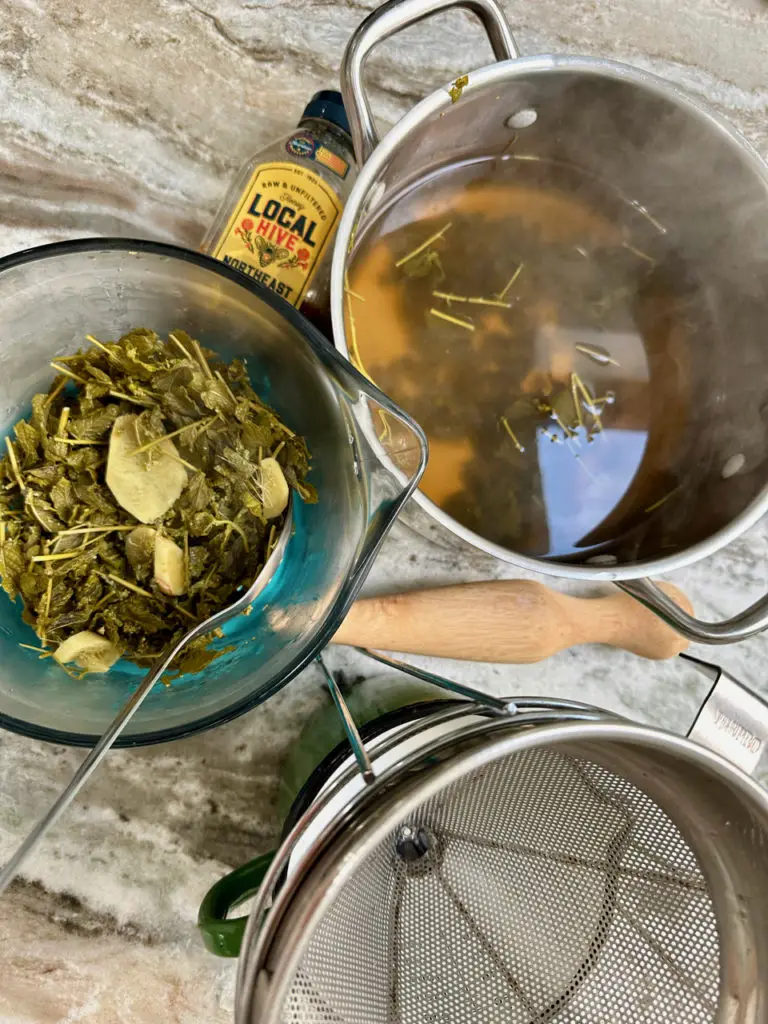
Ingredients Needed
- Fresh peppermint leaves
- Fresh ginger root
- Water
- Raw honey
IBS Relief Can Be Yours
We live stressful lives for sure. We probably drink too much alcohol, eat too much food that wasn’t prepared lovingly at home, which all contribute to sudden attacks of IBS.
Make what changes you are able to in lifestyle and eating habits, but definitely make a large batch of this recipe, freeze in ice cube trays, transfer to an airtight container and save in the freezer.
Irritable Bowel Syndrome can strike fast and hard but knowing you have relief tucked away in the freezer will already bring a sense of calm to your body.
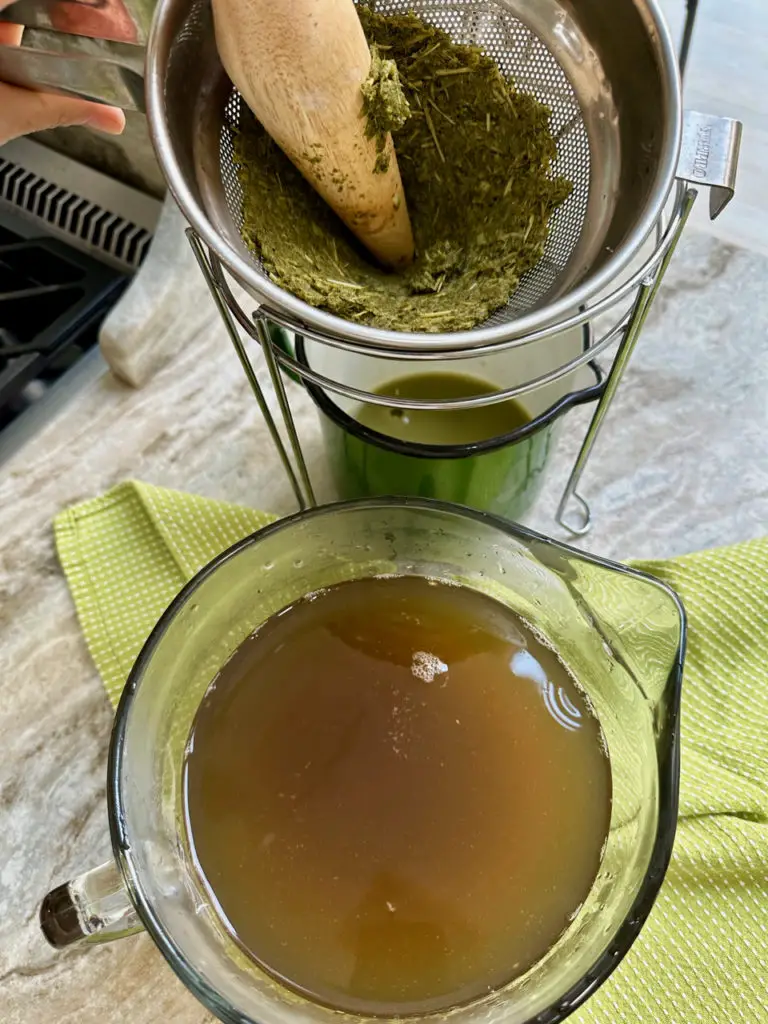
More Recipes To Love With These Simple Ingredients
Keeping these 3 simple ingredients in the kitchen – mint, ginger root and honey – means you will have what you need when tummy troubles arise.
However, there are lots more recipes to love using these ingredients that offer healthier options for everyday cooking.
- Recipes From My Mint Garden – both sweet or savory, and let’s not forget drinks as well!
- Carrot Ginger Red Lentil Bisque – boost your body’s immune with this Carrot Ginger Red Lentil Bisque Soup, loaded with antioxidant spices and autumn flavors.
- Homemade Elderberry and Honey Gummies – made with elderberry flowers and berries simmered into a honey tea, made into healthy gummies.
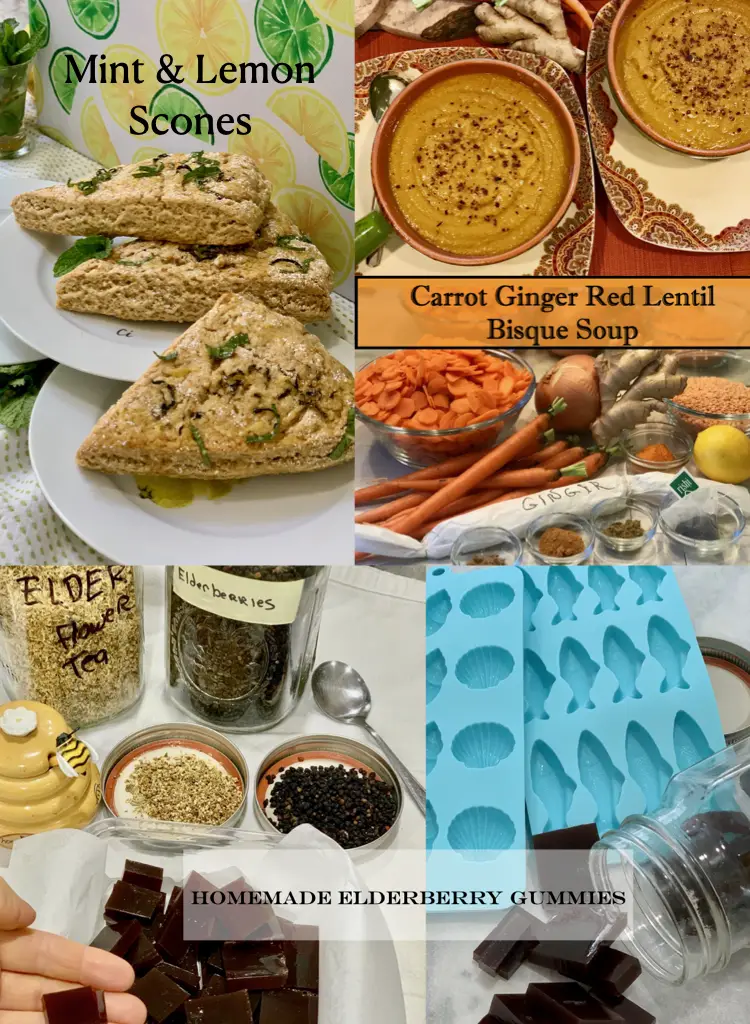
IBS Herbal Tea Recipe Irritable Bowel Syndrome Relief
Equipment
- Large pot with lid
- Slotted spoon
- Food processor
- fine sieve
Ingredients
- 4 cups Fresh peppermint leaves
- 1/4 cup Fresh ginger root
- 8 cups Hot water
- 1/2 cup Raw honey
Instructions
- In a large pot with a lid, place the water in with the lid on and bring to a boil.
- Meanwhile, wash the peppermint and rough chop it. Chopping helps to stimulate the release of the peppermint oil. Peel and rough chop the ginger root.
- When the water has begun to boil, place the mint and ginger in, lid on and bring it back to a boil. Once the water is boiling, lower the heat and simmer for 15 minutes. Turn the heat off and allow to steep for 30 minutes.
- With a spider spoon or large slotted spoon, lift out all the solid pieces and transfer to a food processor. Puree the solid pieces until they turn into a paste-like consistency. Transfer this herbal paste to a fine mesh sieve and press out as much liquid as possible back into the pot of tea. It is in this herbal paste that much of the natural oils can be extracted.
- Whisk in the honey, cool and store in a closed container in the refrigerator. Drink about half a cup at a time throughout the period of digestive discomfort.
Notes
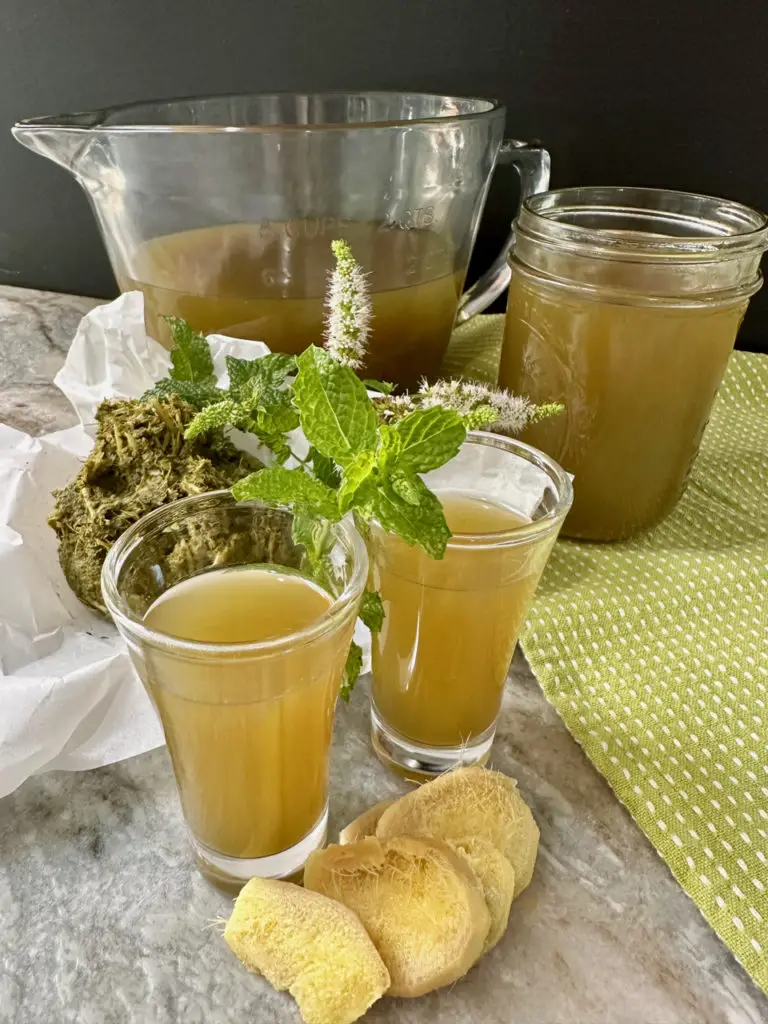

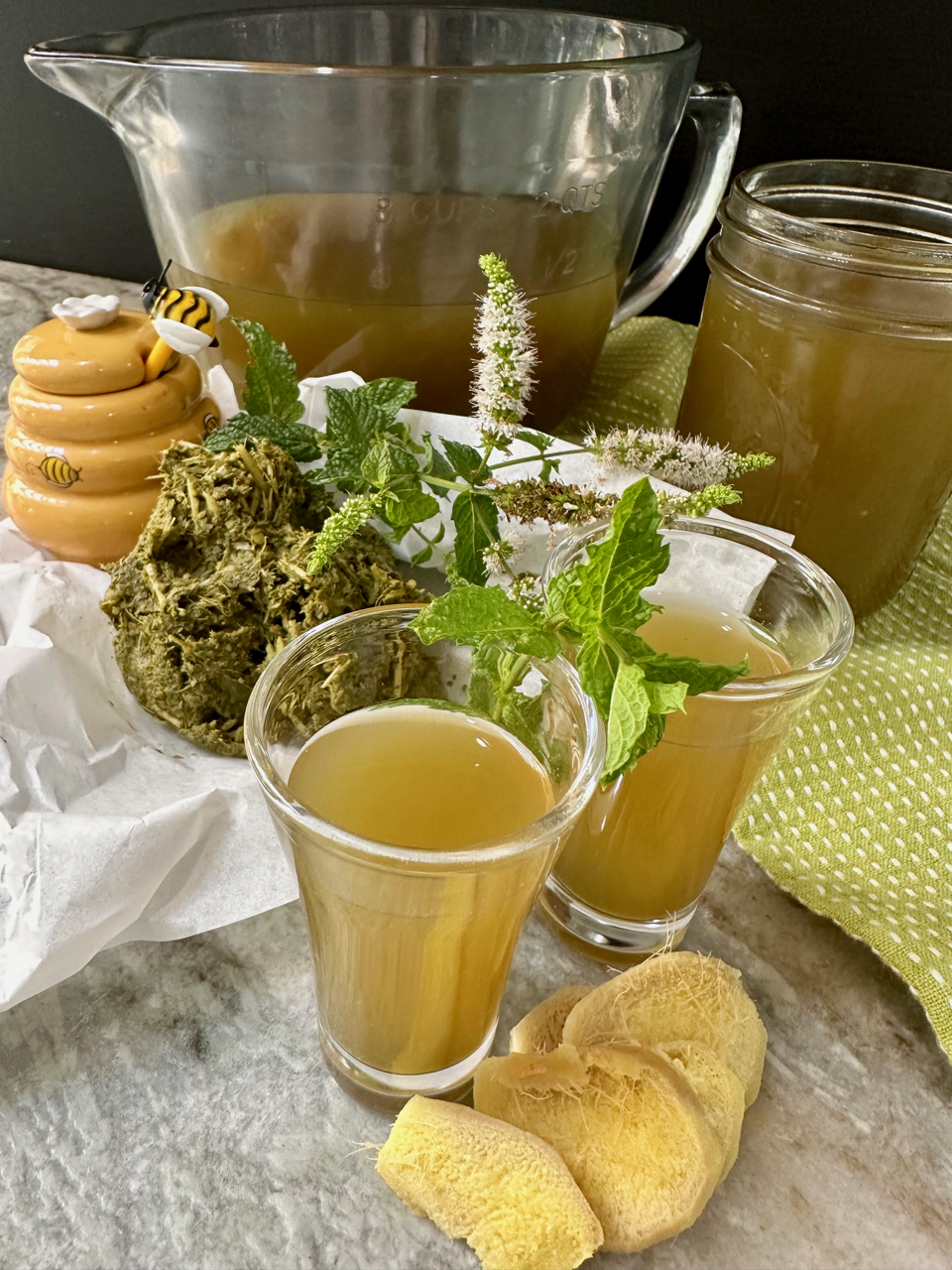
A recipe that really works!